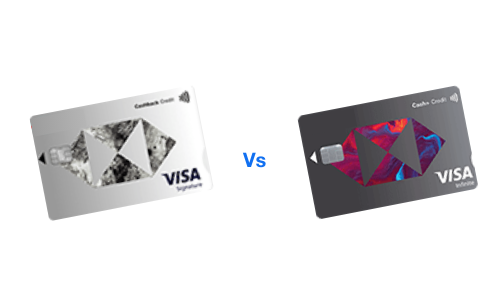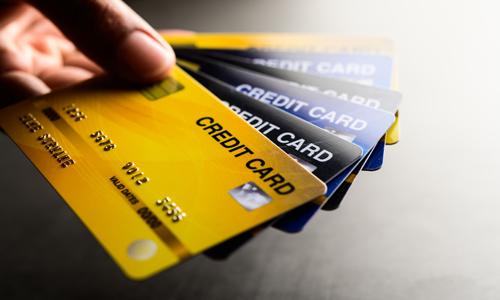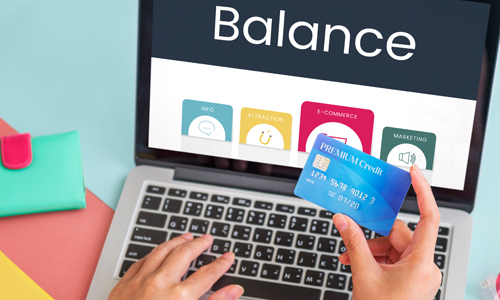Best Practices for Managing Credit Cards

It's time to take charge of your financial destiny, one swipe at a time!
In today's financial landscape, having a credit card is like wielding a double-edged sword. On one hand, it's certainly a powerful tool for convenience, rewards, and building your credit score — on the other, it can lead to a complex web of debt and financial woes.
The secret to mastering this plastic powerhouse lies in knowing the best practices that set you on the path to financial success. In this guide, we'll go through the intricate world of credit cards, uncovering the strategies and tactics that savvy consumers employ to maximise benefits while sidestepping pitfalls. From selecting the perfect card to managing balances wisely, we'll delve into the art of responsible credit card ownership.
Whether you're a seasoned cardholder looking to fine-tune your strategy or a newcomer taking your first steps into the realm of credit, our comprehensive insights will equip you with the knowledge and expertise to wield your credit card like a financial ninja.
Credit Card Management Rules Explained
Exercising extreme caution when handling credit cards is crucial. Unlike debit cards, credit cards involve making purchases on borrowed funds, which means you bear full responsibility for repaying every transaction made with your credit card. Failing to exercise caution can lead to significant debt accumulation.
To excel in managing credit cards, there are four fundamental principles to adhere to. If you only remember one piece of advice from this guide, prioritise the first rule: consistently pay your credit card bill in full and on time every month. This single strategy can have a profound positive impact on your personal finances.
With that said, let’s go through the strategies that you can follow!
1. Pay Your Bills on Time
The most important principle in credit card usage involves consistently settling your bill on time and in its entirety. Adhering to this straightforward guideline can shield you from incurring interest fees, late penalties, and damaging your credit rating. By paying your bill completely, you sidestep interest costs and make strides towards achieving an excellent credit Score.
Typically, you are presented with several choices for settling your monthly credit card statement. While it may be enticing to simply pay the minimum required amount, this can lead to the accumulation of interest, ultimately resulting in prolonged indebtedness.
The recommended approach is to settle your credit card bill promptly following each purchase. This way, you can establish the habit of clearing your dues well before the due date.
Every month, your credit card issuer furnishes your statement with two critical dates — the closing date and the payment date:
- The closing date marks the final day on which you can make charges included in the monthly statement. Any transactions made after the closing date will be billed on the subsequent month's statement.
- The payment date designates the deadline for remitting payment for a specific statement.
Credit cards differ in terms of their billing cycles, payment deadlines, and grace periods. It's essential to examine the details pertaining to your specific credit card to comprehend how it functions in your unique circumstances.
If you struggle to remember to settle your bill, most issuers offer the option to establish automatic payments or schedule monthly reminders.
2. Maintain Low Credit Card Balance
In addition to ensuring punctual payments, it is crucial to maintain a relatively low balance compared to your available credit limit. The two primary advantages of maintaining a modest balance are as follows -
- Keeping a low balance contributes to an improvement in your credit score.
- You are more likely to settle your balance completely and on time.
Your credit score is influenced by several factors, with a substantial portion (30%) determined by your credit utilisation. This is essentially the ratio of your outstanding debt to your total credit limit.
Although there isn't a strict definition for an ideal credit utilisation ratio, experts generally recommend keeping it below 30%. Any amount exceeding this threshold may lead to a decrease in your credit score.
To achieve a low credit utilisation ratio, it's advisable to spend less than what you have the financial capacity to cover. By maintaining a minimal balance, you reduce the risk of spending beyond your means and facing difficulties in paying off your credit card bill at the end of each month.
Lastly, it's essential not to perceive your credit card as an extension of your budget. You should never charge more than what you currently have available in your bank account. While it might be tempting to make purchases based on anticipated future income, this practice is unwise. This is because if you were to lose your job or encounter an emergency, you may find yourself unable to cover those charges.
Accumulating credit card debt is typically unintentional and develops gradually, often spiralling into a challenging cycle to break free from.
3. Learn How the Interest is Calculated
Despite common misconceptions, interest is not computed using the remaining balance after a minimum payment. Instead, card issuers determine interest by utilising your average daily balance, which is derived by dividing your card's APR (Annual Percentage Rate) by 365.
4. Review Your Monthly Statements
Regularly reviewing your statement serves multiple purposes, such as safeguarding against fraudulent activity, adhering to your budget, and ensuring a modest account balance. Even if you've configured automatic payments, it’s always a wise decision to log in and scrutinise your statement on a monthly basis to confirm the absence of any suspicious transactions.
Fortunately, most card issuers employ advanced technology to detect fraudulent charges. However, as they may not catch every instance, it's always advisable to examine your statement at least once a month to ensure that you don't have any unfamiliar purchases.
Moreover, aside from guarding against fraudulent transactions, staying up-to-date with your statement aids in adhering to your budget. Without regular checks, it's impossible to gauge whether you're maintaining a low balance, keeping your spending in check, or surpassing your budget.
How to Use Your Credit Card to Build Your Credit Score?
Here’s how you can use your credit to build your credit score effectively -
Maintaining Your Oldest Account
The age of your credit accounts holds significant weight in determining your credit score, accounting for up to 15% of its composition. To enhance the length of your credit history, it's advisable to keep your oldest account open, regardless of where you stand on your credit card journey.
Avoid Applying for Multiple Cards Simultaneously
Although it may appear counterintuitive, refrain from submitting multiple credit card applications simultaneously to test your eligibility. Most credit card issuers conduct rigorous credit checks during the application process, potentially causing temporary drops in your credit score.
While consistent payments can help recover your score, an excessive number of applications within a short time frame can result in enduring negative repercussions.
A prudent approach involves conducting preliminary research to identify credit cards aligning with your requirements, narrowing down your choices to two or three cards before selecting one for application. If your initial application is declined, consider applying for a different card. In case of another rejection, wait a few months before reapplying. It might be necessary to enhance your credit score to meet the qualifications for specific cards.
Whenever possible, make use of a credit card issuer's pre-approval tool to determine which cards you are eligible for. These pre-approval tools typically trigger soft inquiries that don’t impact your credit score. Furthermore, obtaining pre-approval for a card can furnish you with insights into the potential rates, fees, and terms you could receive when proceeding with a formal application.
Maintain Low Balances
Maintaining low balances is a highly effective strategy for establishing or rebuilding your credit, regardless of your current credit stage. Credit utilisation, which ranks as the second most influential factor affecting credit scores, underscores the importance of this practice. Experts recommend that cardholders keep their credit utilisation below 30%.
The optimal approach to preserving low balances mainly involves spending only within your financial means and ensuring prompt payment of all your bills.
Consider a Secured Credit Card
Secured credit cards can be advantageous for individuals seeking to rebuild their credit or starting from scratch, provided the card issuer reports credit activity to the major credit bureau.
Secured cards necessitate a modest security deposit, which determines the card's credit limit. Some secured cards even offer features like zero annual fees and the potential for cashback rewards.
Through responsible usage, card issuers may eventually upgrade a secured account to an unsecured or traditional account, and they may return the cardholder's deposit as a statement credit or issue a refund cheque in the event of account closure.
How to Earn Cashback and Rewards on Credit Cards?
In addition to achieving a high credit score, credit cards can offer significant financial benefits due to their potential for substantial rewards. When you're selecting your first, second, or even third credit card, it's crucial to consider which types of rewards align best with your spending habits.
To put it simply, you have the opportunity to accumulate rewards by using your credit card for purchases. These rewards typically fall into one of three categories: cashback, transferable rewards, or fixed-value points or miles.
While each category has its advantages and disadvantages, it's essential to keep in mind that regardless of the credit card you choose, any rewards you earn can quickly be outweighed by interest charges and late fees if you're unable to pay your balance in full each month.
Rewards cards may come with annual fees or limitations on how and when you can redeem your rewards. Since rewards cards are generally more appealing to consumers, they often require higher credit scores compared to other types of credit cards.
Cashback
Cashback entails receiving a cash reward for your card purchases, usually in the form of a deposit, a check, or a statement credit. Typically, this is calculated as a percentage of specific eligible purchases each month. Depending on the card issuer, there may be restrictions on how much you can earn and the methods for earning cash back.
Transferable Rewards
Transferable points provide greater flexibility for many cardholders. For instance, you can frequently redeem points for travel similar to cashback, transfer them to partner programs, use them for retail purchases, or even gain access to memberships for popular services like gyms, depending on the card issuer's partnerships.
Airline or Hotel Points and Miles
Some credit card issuers offer co-branded cards in collaboration with major airlines and hotel chains. Typically, these rewards can only be redeemed for travel-related expenses such as flights, upgrades, seat assignments, and hotel stays. However, the downside of earning points and miles associated with a specific airline or hotel is that they are often restricted to use with that airline, its partner airlines, or the affiliated hotel.
The value of points and miles can vary across different programs and even at different times of the year. If you're interested in applying for a co-branded airline or hotel card, it's advisable to determine which airline or hotel you frequent the most and make the decision accordingly, and that too only if it aligns with your travel patterns.
Tips to Manage Your Credit Card
Detailed below are some budget-transforming tricks and tips to manage your credit cards -
Ensure That You Don’t Exceed Your Financial Capacity
Make sure you don’t spend beyond what you can afford. Credit card limits in the UAE can be much higher than your income, serving as a safety net for financial emergencies. However, using this credit for luxury purchases can result in uncontrollable debt.
Staying within your budget and only charging what you can manage enables you to live within your means, preventing you from struggling with unpaid bills if you face job loss or emergencies.
Employ a Spending Tracker or Application
Utilise a spending tracker or an app to keep a close eye on your expenditures. A convenient method to manage your expenses is to use one of the various budgeting apps available online. These apps provide a comprehensive overview of your finances on a regular basis. Depending on the app, you can monitor your account balance, track your spending, share budgets with family members, and even split payments with friends.
Alternatively, you can stay updated on your financial status by checking your account regularly, either through an app or on a weekly basis.
Never Skip a Payment
Avoid missing any monthly credit card payments.
Skipping your monthly credit card payments can lead to costly consequences, including additional fees, increased finance charges, and a reduced credit score. Even though the initial amounts may be small, these charges can quickly accumulate into larger debts.
One important factor is that when you fail to pay your bills in full by the due date, the usual 30-day grace period might not apply to new purchases.
Make Sure to Pay Your Bill in Full
Ensure that you settle your credit card bills promptly and, if possible, in their entirety.
Paying your credit card bills on time and (ideally) in full is the most effective way to avoid profit/interest fees and extra charges. Carrying a balance from one month to the next can result in additional fees, potentially leading to long-term debt.
Paying only the minimum amount can create a false sense of security, as your debts continue to accumulate. For this reason, some experts even suggest paying off your credit card bill as soon as you make a purchase.
Maximise Rewards or Cashback Benefits
Take full advantage of rewards or cashback offers provided by many UAE credit cards.
Numerous credit cards in the UAE offer loyalty rewards, such as airline miles or points that can be redeemed for retail purchases. Others provide cashback options when you meet a minimum spending threshold.
Take out some time to understand which cards offer rewards that align with your preferences. When combined with timely payments, you can save money and even enjoy cost-free travel over time.
Maintaining control over your credit card spending can help you avoid challenging situations, enhance your financial well-being, and bring you peace of mind.
Frequently Asked Questions
Ans: Start with a student or secured credit card if you lack a credit history or possess a subpar credit score. Understand the elements that influence your credit and focus on reducing your debt as swiftly as you can.
Ans: To qualify for rewards credit cards, you typically need a credit score that falls within the good to excellent range. Before applying for a rewards card, make sure that you've examined your credit history and dedicated time to researching the ideal rewards card suited to your needs.
Ans: When utilising a credit card, keep these fundamental guidelines in consideration: Ensure timely bill payments, limit expenditures to your financial capacity, and settle your entire balance each month.
Ans: The number of credit cards that you should have relies on your personal financial circumstances. A single robust rewards card could suffice initially, but having multiple cards can become advantageous as your spending increases, allowing you to leverage diverse rewards as well as additional benefits and features.
More From Credit Cards
- Recent Articles
- Popular Articles



















